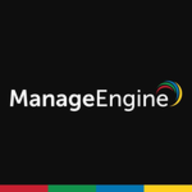

ManageEngine Applications Manager and Apica are both comprehensive solutions for application performance monitoring. ManageEngine Applications Manager generally excels in ease of deployment and customer service, whereas Apica stands out in its advanced features and perceived return on investment (ROI).
Features: ManageEngine Applications Manager is praised for its scalability, comprehensive monitoring capabilities, and intuitive navigation. Apica is highlighted for its robust monitoring of network infrastructure, superior capabilities in synthetic monitoring, advanced analytics, and in-depth reporting functionalities.
Room for Improvement: Users suggest that ManageEngine Applications Manager could enhance its reporting capabilities, reduce resource consumption, and improve its user interface. Common feedback for Apica includes improving its setup complexity, expanding third-party integrations, and simplifying its documentation.
Ease of Deployment and Customer Service: ManageEngine Applications Manager is noted for its straightforward deployment process and responsive customer support. Apica users report a more complex deployment process but appreciate the thoroughness of Apica's support once the setup is complete.
Pricing and ROI: ManageEngine Applications Manager is often viewed as more budget-friendly with faster initial ROI due to its lower setup costs and minimal resource requirements. Apica, although having a higher setup cost, is perceived to deliver better long-term ROI through its superior feature set and advanced capabilities.
| Product | Market Share (%) |
|---|---|
| Apica | 0.5% |
| ManageEngine Applications Manager | 0.6% |
| Other | 98.9% |


| Company Size | Count |
|---|---|
| Small Business | 4 |
| Midsize Enterprise | 2 |
| Large Enterprise | 17 |
| Company Size | Count |
|---|---|
| Small Business | 4 |
| Midsize Enterprise | 4 |
| Large Enterprise | 9 |
Apica leads in observability cost optimization, empowering IT teams to manage telemetry data economics efficiently. It supports various data types, reducing costs by 40% with flexible deployment options and eliminating tool sprawl through modular solutions.
Apica Ascent optimizes observability costs across metrics, logs, traces, and events and provides adaptability beyond proprietary formats. Its patented InstaStore™ technology ensures maximum storage efficiency and advanced root cause analysis. Organizations leverage Apica for comprehensive control over observability investments, reducing runaway costs. With solutions for mitigating high-cardinality data challenges, Apica supports any data lake preference and offers cloud or on-premises deployments. Its modular solutions eliminate unnecessary tool redundancies, enhancing economic efficiency in telemetry data management.
What features define Apica's capabilities?Apica addresses industry needs in monitoring and testing applications, enhancing user experience across sectors. It is instrumental in synthetic checks, load testing, API monitoring, and validating functionalities for stability in gaming, finance, eCommerce, and banking platforms. Apica's versatility supports both on-premises and cloud environments, ensuring accurate insights into service availability and network performance.
ManageEngine Applications Manager is an application performance management (APM) solution that is designed to give users deep insights into both the way that their applications perform and the way that users of those applications experience them. Organizations can use this solution to identify areas where their critical applications are lacking and address them before there are any negative repercussions. ManageEngine Applications Manager is the kind of tool that companies of all sizes can use to keep their applications running in the best way possible.
ManageEngine Applications Manager Benefits
Some of the ways that organizations can benefit by deploying ManageEngine Applications Manager include:
ManageEngine Applications Manager Features
Some of the many useful features ManageEngine Applications Manager has to offer include:
Reviews from Real Users
ManageEngine Applications Manager is a solution that stands out when it is compared to many of its competitors. It is part of a complete suite of management tools that users can take advantage of. The way that ManageEngine Applications Manager keeps up to date with a regular schedule of software updates enables organizations to manage their applications without worrying that they are missing any important capabilities or features. If any feature is absent, users can integrate the solution with other monitoring solutions. ManageEngine Applications Manager regularly undergoes updates that ensure that users have access to all of the latest features and patches.
Rodrigo T., the CEO of AXIOVISTA spa, writes, “This solution is a part of a complete suite of management tools. So, it can be integrated with other solutions for monitoring networks, which is very important. You can expand it or interconnect it with many other tools, which is a powerful feature.”
Syed A., the enterprise senior account manager of sales at a tech services company, writes, “Our customers appreciate that ManageEngine sends regular updates, upgrading their software several times a year.”
We monitor all Application Performance Monitoring (APM) and Observability reviews to prevent fraudulent reviews and keep review quality high. We do not post reviews by company employees or direct competitors. We validate each review for authenticity via cross-reference with LinkedIn, and personal follow-up with the reviewer when necessary.